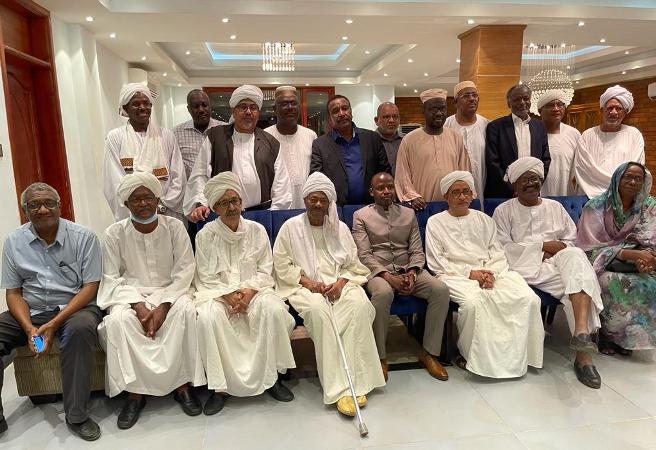UN process should lead to establishing full civilian transition in Sudan: FFC
January 15, 2022 (KHARTOUM) – The Forces for Freedom and Change (FFC) said the UN-facilitated process should lead to establishing a full civilian transitional authority in Sudan.
The FFC groups in a position paper adopted Saturday welcomed the UN-facilitated Consultations on a Political Process for Sudan (CPPS) and expressed appreciation for the international actors who rejected the coup and supported the Sudanese aspiration for democratic rule.
The position paper seen by the Sudan Tribune said the current political crisis is a direct result of the October 25 coup.
“The way out of the current crisis requires an end to the current coup d’état and the establishment of a new constitutional (declaration) in which the transitional authority will be entirely civilian”, reads the text.
The would-be civil authority, composed of the “forces of democratic change”, will implement specific agreed tasks, including preparing for internationally monitored free and fair elections at the end of the transition.
After the coup, the FFC leaders said they have no longer trust in the current military leaders who killed civilians in June 2019 and now they took over the civilian government and kill the protesters.
Accordingly; they reject the reestablishment of the transitional authority agreed in the constitutional declaration of 2019.
Some politicians say they can be represented at the level of the national security council no more.
The coalition of the pro-democracy political and civilian forces also calls to establish a high-level international mechanism including Troika, EU, Sudan’s neighbours, and Arab countries that have common interests with Sudan.
This mechanism will strengthen the UN initiative and expand its support base to achieve its desired goals, stressed the position paper.
The UNITAMS on Saturday issued an explanatory note on the CPPC.
The note reiterated that during the initial stage, UNITAMS will individually consult with Sudanese stakeholders. While in the second phase they will bring the parties to discuss areas of convergences and divergences that emerged during the first phase.
“The UN will not be imposing decisions on the substance – these decisions will be up to the Sudanese themselves,” further stressed the note.
The FFC stressed the need to set a timeline for the process which only should involve, besides their groups, the Resistance Committees, the Sudanese Professionals Association, the armed groups the signatory of the Juba peace agreement and the holdout groups, in addition to the Sudanese Communist Party which was part of the FFC before to breakaway.
The Friends of Sudan will hold a meeting in Riyadh, Saudi Arabia, next week to discuss ways to support the UN-brokered process.
After the Riyadh meeting, Molly Phee U.S. Assistant Secretary for Africa will travel to Khartoum for a meeting with the political and military leaders, women, youth, and civil society groups.
(ST)

